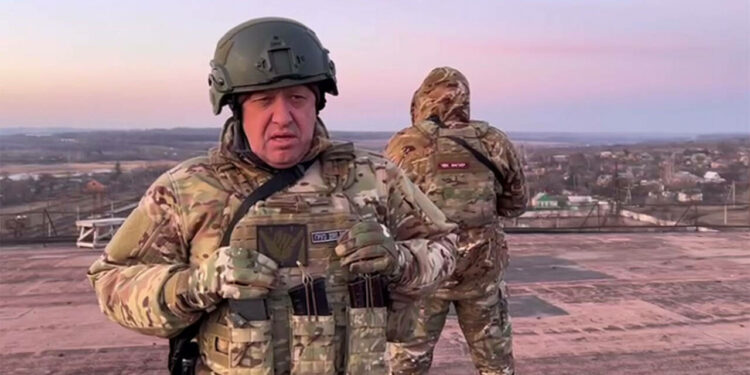"Wagner Group's Declaration of War on Russian Military Leadership: A Critical Analysis of Private Military Contractors and Global Security"
Introduction:
In a shocking turn of events, the notorious Russian mercenary group known as Wagner has declared war on the country's military leadership. This development poses a significant threat to the stability and security of Russia and raises concerns about the influence and power of private military contractors in global conflicts. The implications of this declaration must be carefully analyzed and addressed by both domestic and international stakeholders.
Context:
Wagner Group, a private military company with alleged ties to the Russian government, has gained notoriety for its involvement in various conflicts around the world. The group's declaration of war on Russia's military leadership marks an unprecedented challenge to the established chain of command and exposes potential rifts within the country's security apparatus.
Analysis:
The declaration of war by Wagner Group raises several key concerns and necessitates a thorough examination of the underlying factors that may have led to this development. The following points merit attention:
1. Private Military Contractors and State Sovereignty:
The Wagner Group's actions highlight the increasingly complex relationship between state sovereignty and the involvement of private military contractors. It is crucial to evaluate the balance between national security interests and the potential risks associated with outsourcing military operations to non-state entities.
2. Internal Security and Dissent:
The declaration of war by a domestic mercenary group indicates possible divisions or dissatisfaction within Russia's military establishment. It is imperative for the Russian government to assess the underlying causes and address any internal issues that may have contributed to this situation.
3. Implications for Global Security:
The Wagner Group's declaration serves as a stark reminder of the far-reaching influence of private military contractors on global security dynamics. The incident underscores the need for international cooperation and regulatory frameworks to mitigate the risks associated with the unchecked proliferation of mercenary groups.
Response and Recommendations:
Given the gravity of the situation, it is crucial for the Russian government and international community to respond effectively to this declaration of war. The following measures are worth considering:
1. Internal Investigation and Reconciliation:
The Russian government should conduct a thorough investigation into the causes and grievances that led to the Wagner Group's declaration. It is essential to address any internal divisions and take measures to prevent similar incidents in the future.
2. Strengthening Legislative Frameworks:
Governments and international organizations should review and update existing legal frameworks governing the activities of private military contractors. Enhancing regulations, oversight mechanisms, and accountability measures can help ensure the responsible and ethical conduct of these entities.
3. Diplomatic Engagement and Cooperation:
The international community should engage with the Russian government to de-escalate tensions and encourage dialogue. Cooperative efforts between nations can help address the broader challenges posed by private military contractors and promote stability in conflict zones worldwide.
Conclusion:
The declaration of war by the Wagner Group against Russia's military leadership represents a significant escalation of conflict and highlights the complex dynamics surrounding private military contractors. This development calls for a comprehensive response from both domestic and international actors, focusing on internal investigation, legal frameworks, and diplomatic engagement. Addressing these issues will be crucial in safeguarding national security and maintaining global stability in an era where private military contractors play an increasingly prominent role.


Comments
Post a Comment